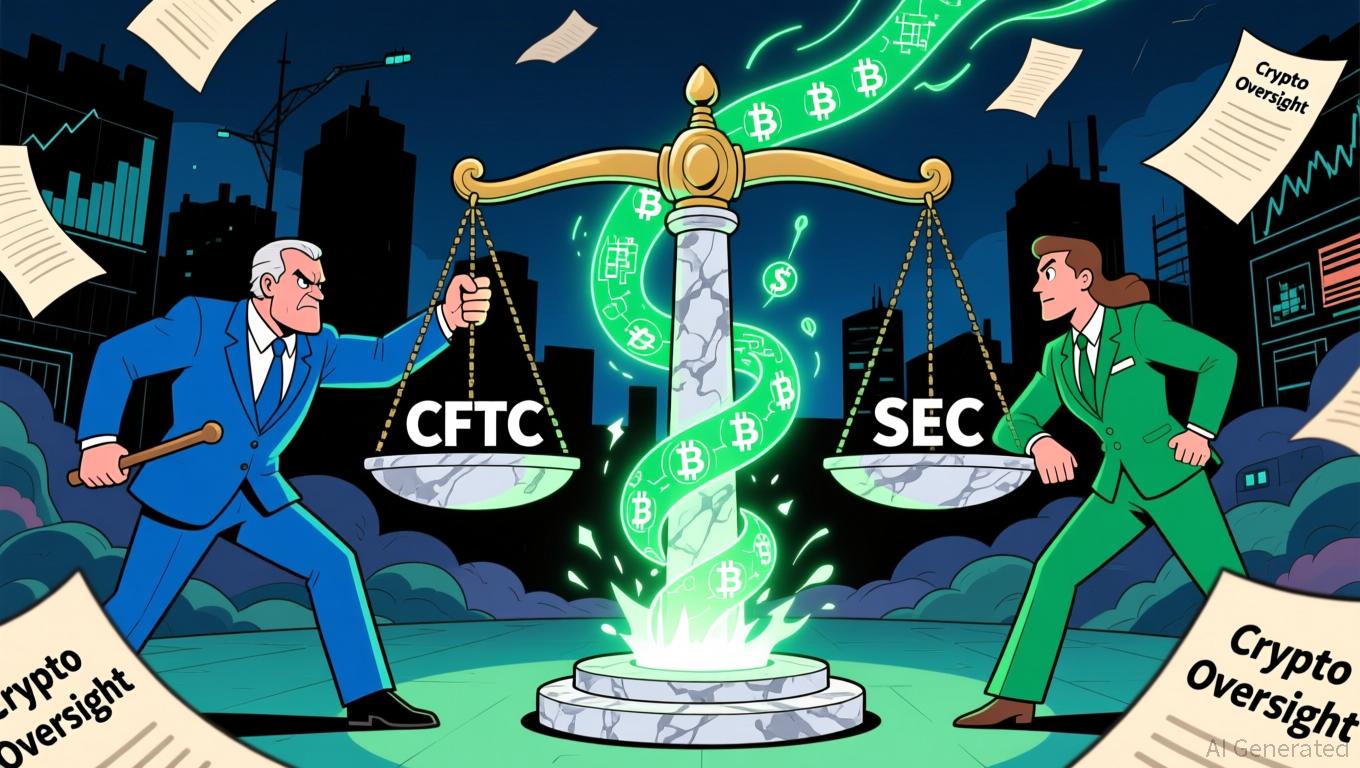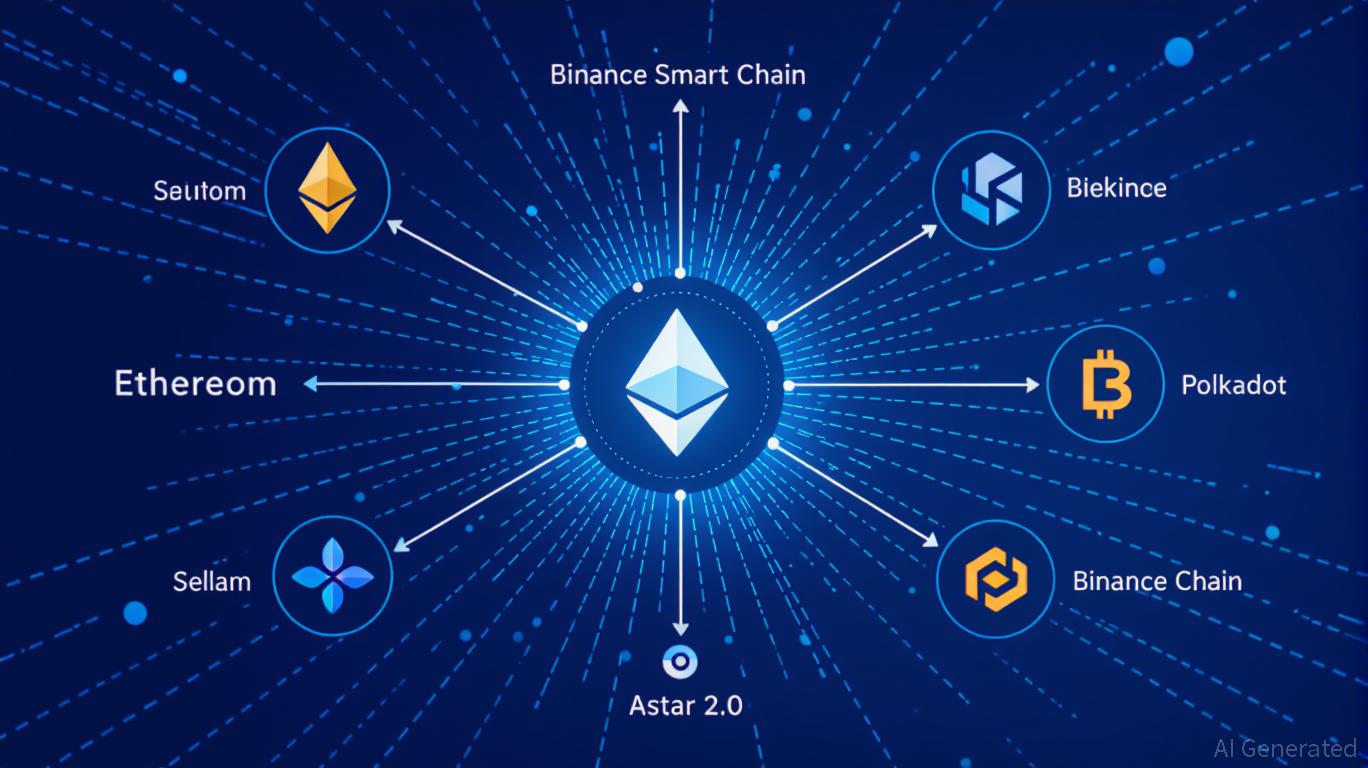Bitcoin Updates: Hong Kong's Cryptocurrency Regulations Ignite Clash Between Digital Assets and Conventional Banking
- Franklin Templeton CEO Jenny Johnson highlights crypto's disruptive potential, framing it as a bridge to traditional finance amid institutional adoption and Bitcoin's "digital gold" appeal. - Hong Kong's SFC reforms enable crypto exchanges to access global liquidity pools, accelerating blockchain integration while maintaining investor protections under Fintech Week 2025 initiatives. - Market volatility contrasts with institutional optimism: Coinbase reports 25% Q3 revenue growth, while Saylor predicts $1
Jenny Johnson, CEO of Franklin Templeton, has highlighted the cryptocurrency industry as a powerful catalyst for change that is set to challenge conventional finance, reflecting a broader movement in the sector toward integration and innovation. During her address at Hong Kong Fintech Week 2025, Johnson redefined the dynamic between digital assets and established financial institutions, describing the shift from "two parallel universes" to an environment where both are increasingly intersecting, as noted by
Her comments reflect a wider sense of optimism in the market, such as Michael Saylor’s recent assertion that Bitcoin could climb to $150,000 by the end of 2025, as covered by

Hong Kong is emerging as a key player in this transformation. The city’s Securities and Futures Commission (SFC) has introduced new regulations permitting licensed crypto exchanges to tap into global liquidity pools, a step intended to enhance trading performance and market competitiveness, as reported by
These regulatory advances are already drawing major industry participants.
Nevertheless, the sector still faces hurdles. Recent volatility, including a $19 billion drop in crypto markets and dYdX’s $462,000 compensation plan for impacted traders, underscores the risks involved. Still, experts believe that clearer regulations and greater institutional engagement—highlighted by BlackRock’s leadership in Bitcoin ETF inflows—are essential for lasting stability.
As the digital asset space continues to develop, Johnson’s outlook for a "new business model" reshaping finance is becoming more tangible. With Hong Kong’s regulatory progress, institutional momentum, and technological innovations like tokenized RWAs and staking ETFs, the merging of crypto and traditional finance is not only possible but rapidly unfolding.
Disclaimer: The content of this article solely reflects the author's opinion and does not represent the platform in any capacity. This article is not intended to serve as a reference for making investment decisions.
You may also like
Bitcoin News Update: CFTC's Broader Role in Crypto Regulation Ignites Discussion on Clearer Rules
- U.S. lawmakers propose expanding CFTC's crypto oversight via a bill reclassifying spot trading, diverging from SEC's enforcement approach. - Harvard University invests $443M in BlackRock's IBIT ETF, reflecting institutional confidence in crypto as a legitimate asset class. - DeFi projects like Mutuum Finance raise $18.7M in presales, leveraging regulatory momentum and transparent on-chain credit systems. - RockToken's infrastructure-backed crypto contracts attract long-term investors with structured yiel

DASH Aster DEX's Latest On-Chain Growth and What It Means for DeFi Liquidity
- DASH Aster DEX leads 2025 DeFi shift with hybrid AMM-CEX model and multi-chain support (BNB, Ethereum , Solana), boosting TVL to $1.399B and Q3 daily trading volumes of $27.7B. - Platform's 1,650% ASTER token price surge post-TGE attracted 330,000 new wallets, with 94% of BSC-USD volume ($2B/day) driving institutional adoption via Binance/YZi partnerships. - ASTER token mechanics enable 80% margin trading, 5-7% staking rewards, and governance rights, while annual 5-7% fee burns create scarcity and align

Astar 2.0: Leading a New Generation of DeFi and Cross-Chain Advancements
- Astar 2.0 introduces a zkEVM mainnet and cross-chain interoperability, slashing gas fees and enabling 150,000 TPS with 2025 scalability goals. - Strategic partnerships with Mazda, Japan Airlines, and Sony demonstrate blockchain's real-world applications in logistics, loyalty programs, and digital asset tokenization. - Q3 2025 data shows $2.38M DeFi TVL growth and 20% active wallet increase, alongside a $3.16M institutional ASTR token acquisition. - The platform aims to solidify its role as a foundational

Aster DEX Introduces New On-Ramp: Transforming Retail Participation in DeFi
- Aster DEX integrates institutional-grade custody and privacy tech (zero-knowledge proofs) to bridge retail-institutional DeFi gaps via BNB Chain partnerships. - TVL surged to $2.18B by late 2025 through yield-bearing stablecoins and hidden orders, attracting both retail and institutional liquidity. - Despite compliance gaps and wash trading concerns, Aster's Binance alignment and Coinbase listing signals growing institutional validation.
